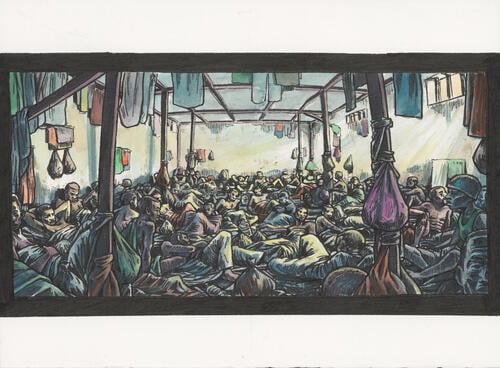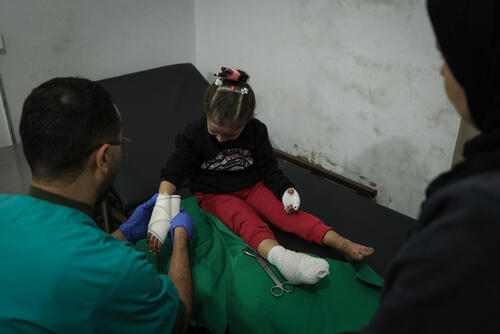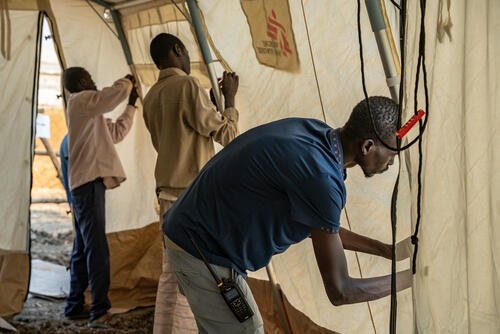In 2024, some 787,000 people who are migrants and refugees were present in Libya, according to the International Organization for Migration. While some of them come in search of work, others try from to reach Europe by crossing the Mediterranean Sea.
In Libya, they live in precarious conditions and are subjected to a range of violence and abuse, both inside and outside the country's detention centres. Abducted, subjected to extortion and trafficking practices, assaulted or sexually abused, their access to healthcare is severely hampered at a time when they desperately need it.
“I fainted under the blows, and when I woke up, they were still beating me,” says Ahmed*, a young Sudanese boy arrested and thrown into prison while trying to travel to Tunisia. “I was disfigured, I had no teeth, and my friend Saud told me they had hit my head with a brick.”
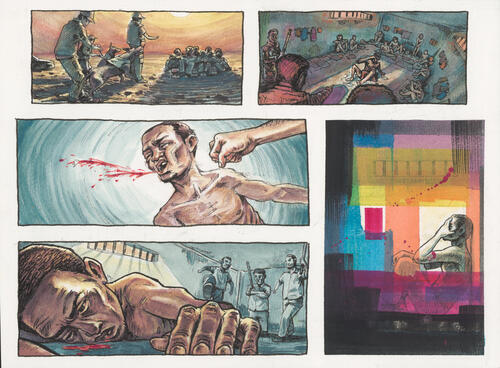
Taken care of by Médecins Sans Frontières (MSF) teams in Zuwara, a coastal town around 100 kilometers from the capital, Tripoli, Ahmed spent a month in hospital.
“People living undocumented in Libya have no protection, either in law or from the country's fragile institutions, which prevents them from accessing healthcare,” says Steve Purbrick, MSF's head of programmes in Libya. “They are exposed to violence on a daily basis. We see people who have been trafficked, others who have been tortured, raped.”
No protection and no access to healthcare
Libya is the first country of departure for people attempting to cross the Mediterranean Sea to Italy. Like Ahmed, undocumented migrants and refugees arriving there are exposed to violence throughout their journey. On the spot, they live in places often overcrowded, dangerous and unhealthy – shared rooms, but also sometimes abandoned sheds or building sites where they are also at risk of contracting diseases.
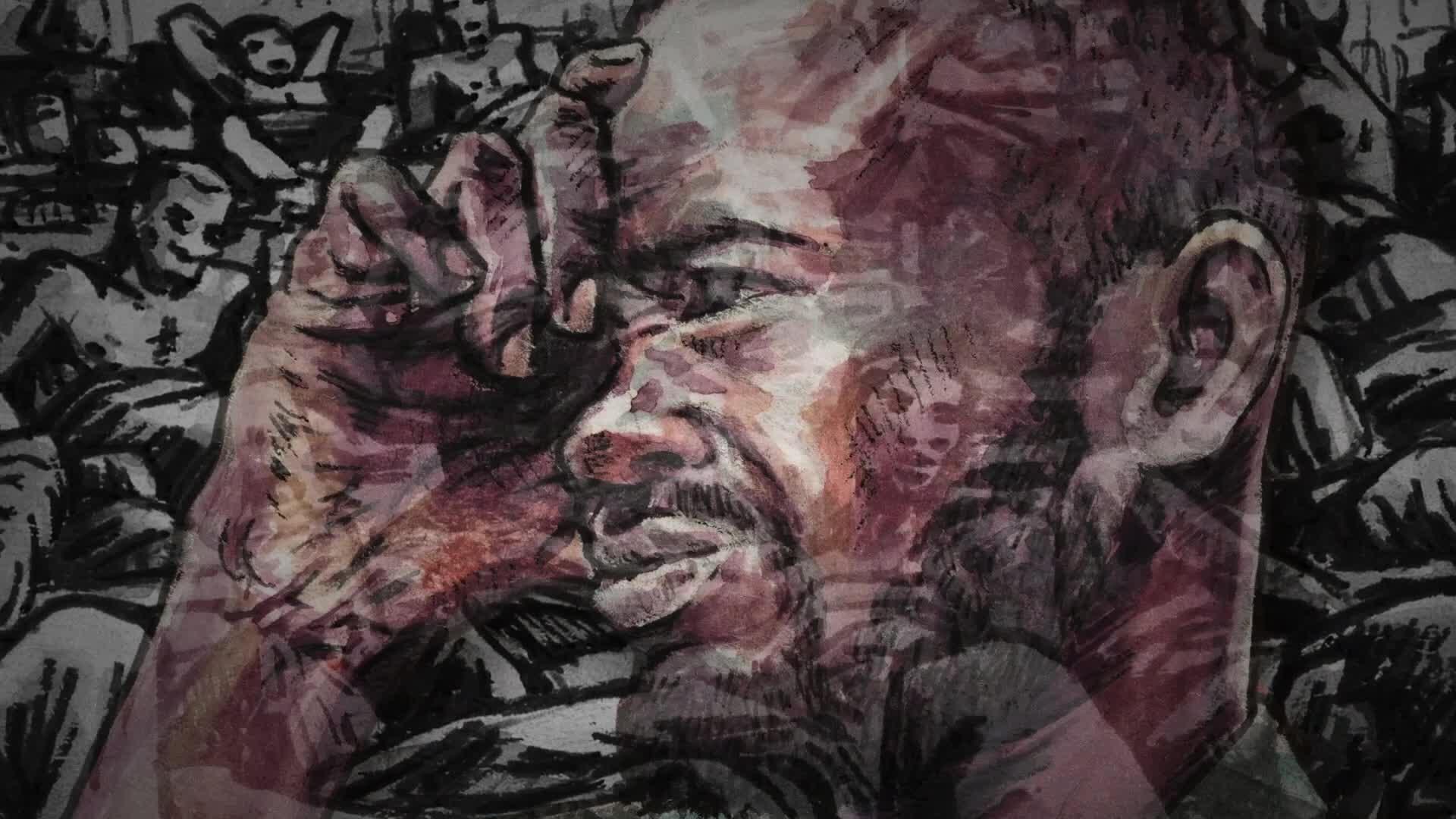
Libya at the crossroads
“Their state of health reflects both their living conditions and the extreme violence they face,” says Issam Abdullah, a doctor and the deputy medical manager for MSF in Libya. “Without protection and access to care, their injuries and traumas are rapidly worsening.”
MSF teams provide medical support in the cities of Misrata, Tripoli and Zuwara for basic healthcare, sexual and reproductive health, mental health, diagnosis and treatment of tuberculosis, and sexual violence. The most serious medical cases requiring hospitalisation are referred to the capital. Ahmed's jaw operation was financed by MSF and carried out in a Tripoli hospital as there was no alternative solution.
In 2024, MSF teams carried out over 15,000 consultations. The majority of those receiving mental healthcare were suffering from post-traumatic stress disorders linked to the violence they had endured.
“Your destiny can change at any moment in Libya, all it takes is one little thing and your life is turned upside down, you can die, you can end up in prison,” says Nelson, a man from Cameroon who has been under the care of an MSF psychologist since the sinking of the boat he had boarded with his wife and two children to reach Europe. His wife and children did not survive the shipwreck.
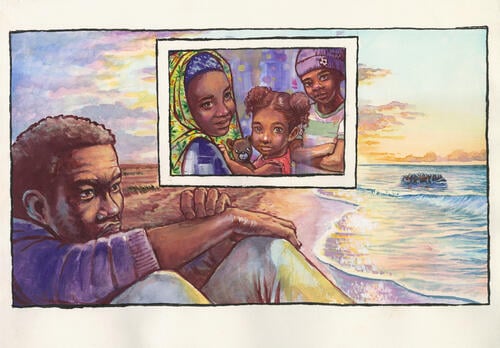
“To go and see a doctor, for example, or to buy bread, you can take the wrong road and run into police. If it's your lucky day, they don't see you; if it's not your lucky day, they arrest you,” says Nelson.
Delayed care
Faced with the risk of abduction and arrest by the police or militia, people are forced underground in isolated places where they are even more vulnerable. They seek medical care only as a last resort when their state of health has already seriously deteriorated.
In 2024, MSF teams diagnosed and treated more than 250 people with tuberculosis. Sixteen died because they were not treated in time.
“We receive people suffering from tuberculosis who seek treatment very late, which leads to high mortality and further spread of the disease,” say Dr Abdullah. “Our teams are also seeing the negative impact of interrupted treatment.”
Salma* is 37 and has diabetes. She fled the war that broke out in Sudan in April 2023. “Diabetes requires regular meals and medication, and in Libya that's not possible,” says the university professor.
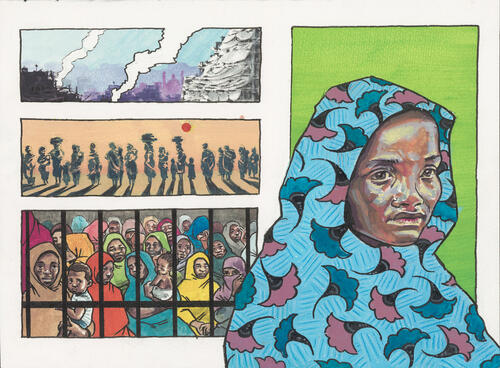
“When I had to leave, my health deteriorated rapidly as the days went by – I became incapable of doing anything, not cooking, not even getting dressed... I became completely dependent on my daughters,” she says.
More evacuations from Libya
“People on the move are an integral part of an economic model set up by militias, with the complicity of the European Union and its member states, with the aim of extorting money from them. They have to pay in exchange for their crossing, in exchange for their release and the continuation of their journey, but always with the risk of falling victim to criminal networks once again,” says Purbrick, MSF’s head of programmes.
“This is why, in addition to providing access to healthcare in the country, we are also focusing our efforts on opening up safe and legal pathways to evacuate people from Libya, in particular via the humanitarian corridor that exists between Libya and Italy,” he says. “MSF participates in this corridor by identifying vulnerable people to be evacuated and taking charge of some of them in Italy. But these options need to be drastically increased.”
Since 2021, this corridor has already enabled the evacuation of more than 700 people, around 60 of whom were patients of MSF in Libya. Fourteen people were subsequently cared for by MSF in Palermo, Sicily.
In April 2023, the United Nations published a report concluding there were grounds to believe a wide array of crimes against humanity have been committed against migrants in Libya.
*Names have been changed.



